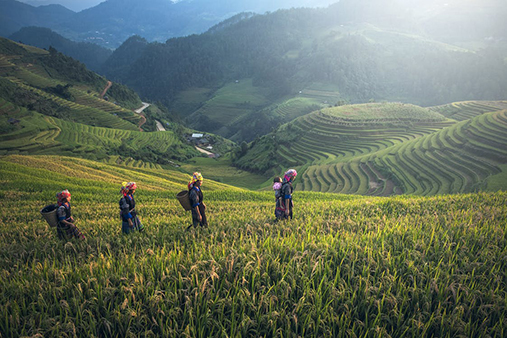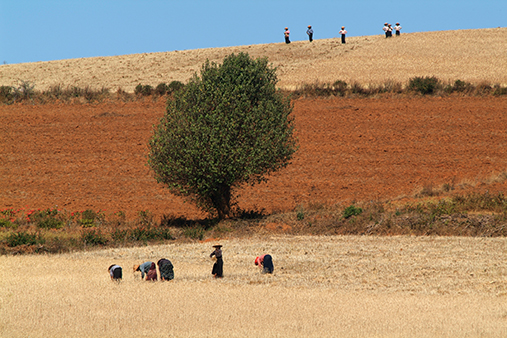Poverty Reduction and the 2030 Agenda for Sustainable Development
Group leader: Dan Banik

The world faces a double challenge: to eradicate hunger and poverty and to stabilize the global climate before it is too late. Our focus is on undertaking critical, independent and high quality interdisciplinary and policy-related research on the challenges and dilemmas posed by poverty, climate disruption and sustainable development. We aim to better understand vulnerability to poverty, hunger and famine in low and middle-income countries and potential policy solutions.
This research group's aim is:
- To undertake empirical studies in different countries with an emphasis on ‘the politics of everyday life’ and ‘policies in practice’
- To study policies, programs and events that can be considered “promising” or even successful in improving the well-being of the poor and contributing to overall societal progress;
- To study the explicit role of institutions, politics and power in shaping and determining action by governments;
- To critically assess what has been the impact of global ideas and values, including those emanating from the foreign aid discourse, on local policymaking in poor countries;
- To study the impact of governance and institutional reforms and the process by which anti-poverty policy is formulated, articulated, legislated, delegated and implemented in middle-income and low-income countries;
- To examine international development policy in the Sustainable Development Goal (SDG) era.
Rural transformations
Group leader: Mariel Aguilar Støen

In the 21st century, the rural is increasingly decoupled from the agrarian. This warrants critical rethinking of rural transformations.
Land and resources are back on the political agenda — at the heart of contemporary conflicts over livelihoods and environments. While global land grabbing for infrastructure, industries, agriculture, nature conservation, and carbon storage is central to the debate, these ongoing processes are linked to a much wider spectrum of interests.
Contemporary resource frontiers take various forms, including:
- Food production, food systems and food regimes
- agro-industrial plantations
- extractive industries
- energy production
- tourism
- nature conservation
Rural life is also shaped by domestic and international migration, deagrarianization, state and non-state forms of governance, international trade as well as new forms of authoritarian populism.
Responses from rural peoples involve not only passivity or resistance but also other – at times contradictory – forms of agency. Such agency manifests in projects and processes that both involve agriculture and go far beyond it. Consequently, in the 21st century, ‘the rural’ is increasingly decoupled from ‘the agrarian’ in ways that warrant critical rethinking of rural transformations.
